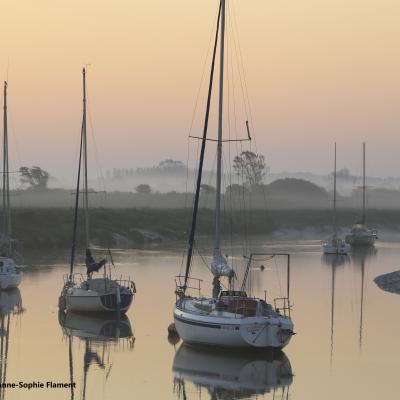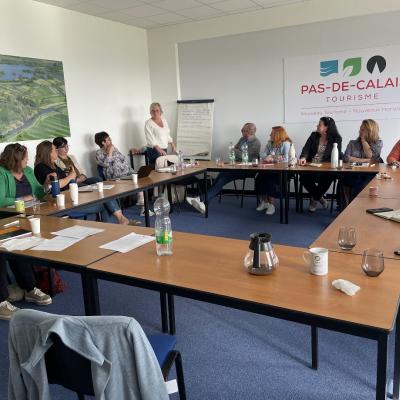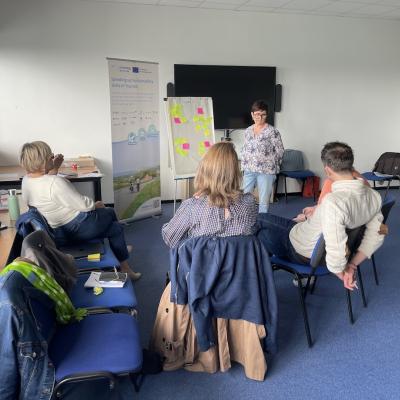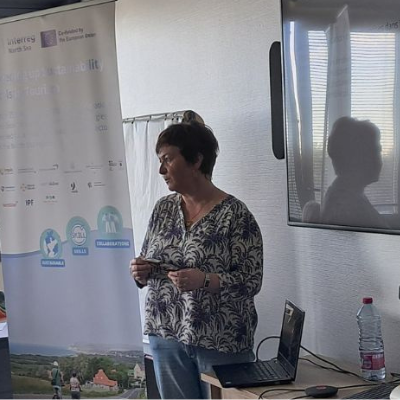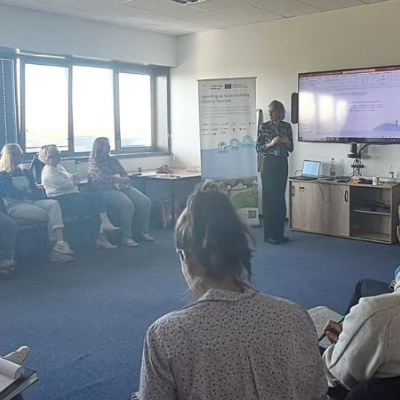What is the challenge?
Tourism is booming in Pas-de-Calais. The region benefits from more favourable weather patterns and an increasing number of coastal visitors. But climate change is accelerating and with it comes growing pressure on the local environment and tourism infrastructure.
By 2050, this northern French region is expected to experience:
- A +1 to +2°C rise in average temperatures
- Up to 22 days of heatwaves annually (compared to just 3 today)
- Greater risk of droughts, heavy rainfall, flash floods and coastal flooding
These changes pose major risks to the quality of life for residents, the sustainability of local ecosystems, and the long-term viability of the tourism sector.
Why this pilot?
Rather than seeing climate change as a threat, Pas-de-Calais Tourism sees it as an opportunity: to lead the way in adapting tourism to future challenges while maintaining the region’s appeal and liveability.
Tourism currently places a heavy demand on local water and energy resources and contributes significantly to waste production. Through the 3ST pilot, Pas-de-Calais is working to reverse these effects by strengthening climate resilience, managing tourism flows, and creating shared value for residents, businesses and visitors alike.
Who is involved?
The Pas-de-Calais pilot is led by Pas-de-Calais Tourisme, in close collaboration with ADEME (the French Agency for Ecological Transition), local authorities, tourism SMEs, and regional stakeholders such as the Parc naturel régional des Caps et Marais d’Opale.
Together, these partners are building a shared approach to sustainable tourism, applying the Theory of Change (ToC) method to co-create practical and scalable solutions. This means:
- Identifying the most urgent climate and tourism challenges for the region
- Bringing together public authorities, destination managers, entrepreneurs and civil society to co-design responses
- Implementing training and coaching programmes tailored to local tourism professionals
- Piloting real-world solutions in areas such as water conservation, energy efficiency and waste reduction
This multi-stakeholder collaboration strengthens the region’s capacity to adapt to climate change while offering better services and experiences for both residents and visitors.
By embedding sustainability into everyday practice, the Pas-de-Calais pilot contributes not only to local resilience, but also to a wider European ambition: making the tourism sector more future-proof across the North Sea Region.
© Pas-de-calais- tourism
What has been done so far?
Two pilot areas are taking the lead:
1. Grand Site de France (Two Capes)
This spectacular coastal area focuses on:
- Promoting responsible visitor behaviour
- Developing sustainable tourism offers
- Reducing pressure on natural sites by regulating visitor flows
- Mobilising tourism stakeholders around a common sustainability vision
2. Communauté d’Agglomération des Deux Baies en Montreuillois
An inland territory with strong environmental ambition, working on:
- Sustainable tourism positioning and strategy
- Promotion of soft mobility and walking tourism
- A regional climate and energy action plan
- A local food strategy (Territorial Food Project)
- Improved waste prevention and water resource management
Both pilots aim to foster cross-sector collaboration and embed sustainability across the tourism value chain.
Contact Pas-de-Calais for more information.

